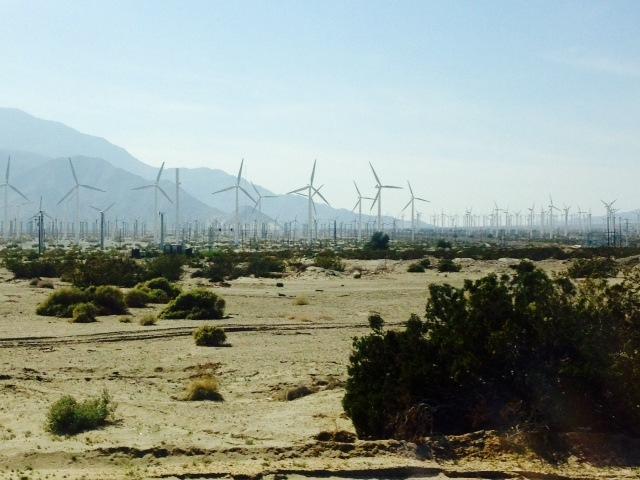
Nestlé yet again finds itself in another bottled water controversy.
One of the great marketing scams of the past generation, bottled water has been a financial windfall for Nestlé and many other food and beverage companies. Despite most of the U.S. having one of the safest drinking water infrastructures on the globe, bottling companies have made a mint convincing consumers they need bottled water. Never mind the excessive cost, the plastic waste and fuel wasted hauling heavy crates of water across the country — these companies and trade associations disingenuously position bottled water as a “consumer choice,” and a fight against obesity.
The controversy continues in the California desert. The state, along with much of the country, has endured one of its worst droughts on record. Residents can now be fined up to $500 for excessive watering as spit-spats between farming, fishing, business and environmental interests fester. One company, however, has been bottling water for several years in one of the driest parts of the state, the Coachella Valley.
Nestlé, which sells the most bottled water in the U.S., is attracting more attention for bottling water in a region suffering from depleted groundwater. Maybe it’s just a drop in the bucket compared to how else water is wasted in the region. Perhaps Arrowhead-branded bottles of water are significantly contributing to lower aquifer levels.
But we don’t really know because since 2009 Nestlé has refused to disclose how much water it is pumping.
As Desert Sun writer Ian James explained, the problem is that the Cabazon bottling plant is on an Indian reservation. Because the Morongo Band of Mission Indians is a “sovereign nation,” the tribe does not have to disclose water levels or information on groundwater. The Desert Sun requested data on groundwater levels, but Nestlé refused to respond. Nor does the company share any data with other local water districts or government agencies. In an email, the company blandly claimed it “operates in strict accordance with all federal and state public health regulations, pursuant to our agreement with the Morongo Band of Mission Indians.”
Finding common ground will not be easy. Plenty of local residents are questioning whether it is wise to bottle and export water in a region that averages three inches of rain a year, where aquifers that took millennia to fill are not being replenished. Others will point out the plant provides about 250 non-casino jobs in a local economy that offers few opportunities outside retail and tourism.
The real issue here is transparency. Nestlé has long assaulted anyone who will listen with social media campaigns and press releases boasting about what a responsible company it is, along with its dedication to “shared value.” But hiding behind a “sovereign nation,” lawyers and mealy-mouthed corporate statements, Nestlé is sporting a black eye in this fight.
True, Nestlé is not the only company siphoning off water for dubious uses — a local casino and resort, plus a concrete plant, are also tapping into these aquifers. One can also point out local water supplies keeping golf courses, sidewalks and annual plants clean and green. But Nestlé has an opportunity to take a stand, disclose the amount of water used in the Cabazon plant, and let stakeholders have access to data and decide for themselves whether the bottling plant has a severe impact on local water supplies or not. Instead, as in the case of far too many companies, Nestlé wants to pick and choose examples of how they are socially and environmentally responsible and therefore, creating “shared value.”
Triple Pundit has long covered the bottled water vs. tap water controversy; read more here.
Image credit: Leon Kaye
Leon Kaye has lived in Abu Dhabi for the past year and is on his way back to California. Follow him on Instagram and Twitter.

Leon Kaye has written for 3p since 2010 and become executive editor in 2018. His previous work includes writing for the Guardian as well as other online and print publications. In addition, he's worked in sales executive roles within technology and financial research companies, as well as for a public relations firm, for which he consulted with one of the globe’s leading sustainability initiatives. Currently living in Central California, he’s traveled to 70-plus countries and has lived and worked in South Korea, the United Arab Emirates and Uruguay.
Leon’s an alum of Fresno State, the University of Maryland, Baltimore County and the University of Southern California's Marshall Business School. He enjoys traveling abroad as well as exploring California’s Central Coast and the Sierra Nevadas.














